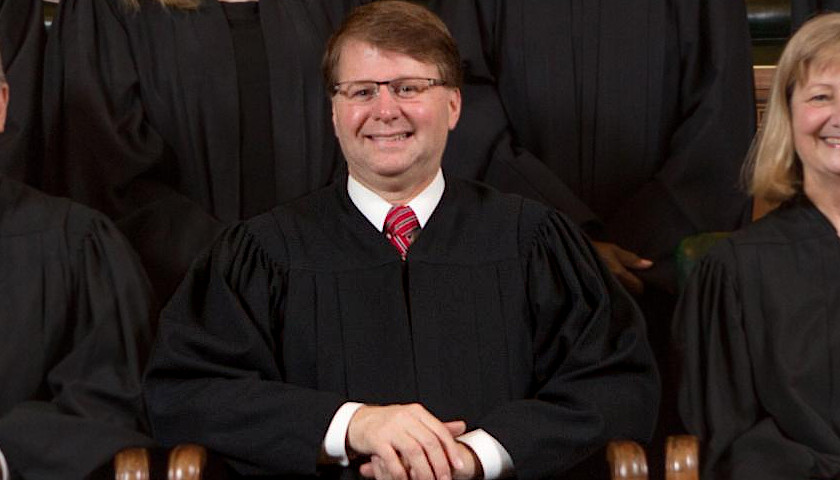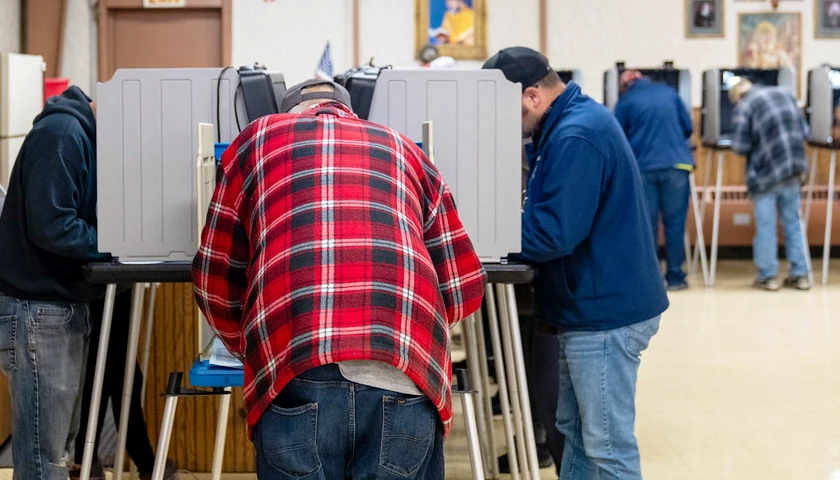State lawmakers have now filed a 32-page Writ of Supersedeas after a motion for a stay was rejected. A Writ of Supersedeas is a legal filing, similar to a stay of proceeding, which suspends a trial court’s judgment until an appeal is heard.
“More than two million North Carolinians had their votes suppressed on critical issues of election integrity and the income tax cap for their families,” Speaker Moore said in a statement.
“The Court of Appeals should reverse this outrageous decision as soon as possible to restore the people’s confidence that their voices matter and cannot be invalidated by a single judge who disagrees with their decision,” said Moore.
On March 1, Superior Court Judge George Bryan Collins, Jr. ruled that two out of four state constitutional amendments passed by North Carolina voters in 2018 were illegal because the State Legislature was itself “illegal.”
“An illegally constituted General Assembly does not represent the people of North Carolina and is therefore not empowered to pass legislation that would amend the state’s constitution,” Collins wrote in his ruling.
“The trial court became perhaps the first court in the country to invalidate legislation based on the theory that a state’s legislative branch was made up of so-called usurpers who could not pass valid laws,” the Writ of Supersedeas states.
The Writ Supersedes takes direct aim at Collin’s use of in abitio, or ‘from the beginning, stating that “because the challenged districts were drawn in 2011, the trial court’s rationale calls into question all acts of the General Assembly after legislators from the challenged districts were seated in January 2013.”
Former North Carolina Supreme Court Justice Barbara Jackson asked a similar question about Collins’ ruling and how far it could go.
“My question is whether challenges to legislation would be limited to the past six years? NC has had legislatures determined to be illegally gerrymandered dating back to Gingles v Thornburg in the modern era,” Jackson said in a two-part Tweet.
Since the trial court ruled these acts were void “ab initio”—from the beginning—it seems likely we could see challenges to bills passed by earlier legislatures. #EpicCanofWorms,” said Jackson in the second tweet.
The latest filing by lawmakers on Tuesday makes several points, including that multiple courts, including the U.S. Supreme Court, have failed to find that a “usurper legislature” exists. In addition, the filing goes on to point out that while “other courts have considered challenges to laws based on claims of improperly constituted legislatures,” but that there is no case where a law was struck down as a result.
“The 22 February 2019 Order provides no guidance as to why other laws are not also void,” the filing states and gives the example that the same plurality of the legislature passed the amendments to be voted on as did overturn multiple gubernatorial vetoes.
The two amendments in question are Voter ID and a state tax cap of 7%. Both passed by wide margins, 10.98%, and 14.70% respectively.
Over half of the total number of registered voters in North Carolina are affected by the Collins ruling. The tax rate amendment has 3,652,631 total votes attached to it and the voter ID amendment has 3,693,104 total votes.
– – –
A.P. Dillon is the North Carolina Bureau Chief for The Tennesee Star and a reporter at Battleground State News. Follow A.P. Dillon on Twitter. Email Tips to [email protected].
Photo “North Carolina Supreme Court” by North Carolina Courts.





